The Impact of GDPR on Access Control and Data Security
VerifiedAdded on 2023/04/23
|6
|983
|66
Report
AI Summary
This report explores the crucial role of access control within the framework of the General Data Protection Regulation (GDPR). It begins with a definition of GDPR and its primary objective: empowering individuals to control their personal data and simplifying the regulatory environment for businesses in the European Union. The report details GDPR compliance requirements, emphasizing the protection of personal data including names, addresses, photos, and IP addresses. It outlines a four-step methodology for ensuring security measures are aligned with GDPR compliance. The report examines the impact of GDPR on various companies, particularly those that handle large volumes of customer data. It concludes by highlighting the importance of proactive measures for GDPR compliance, including the creation of efficient data governance frameworks, specialized personnel, and regular audits. This analysis underscores the necessity for organizations to embrace compliance to mitigate potential challenges. The paper provides insights into the importance of access control in the digital age.
1 out of 6

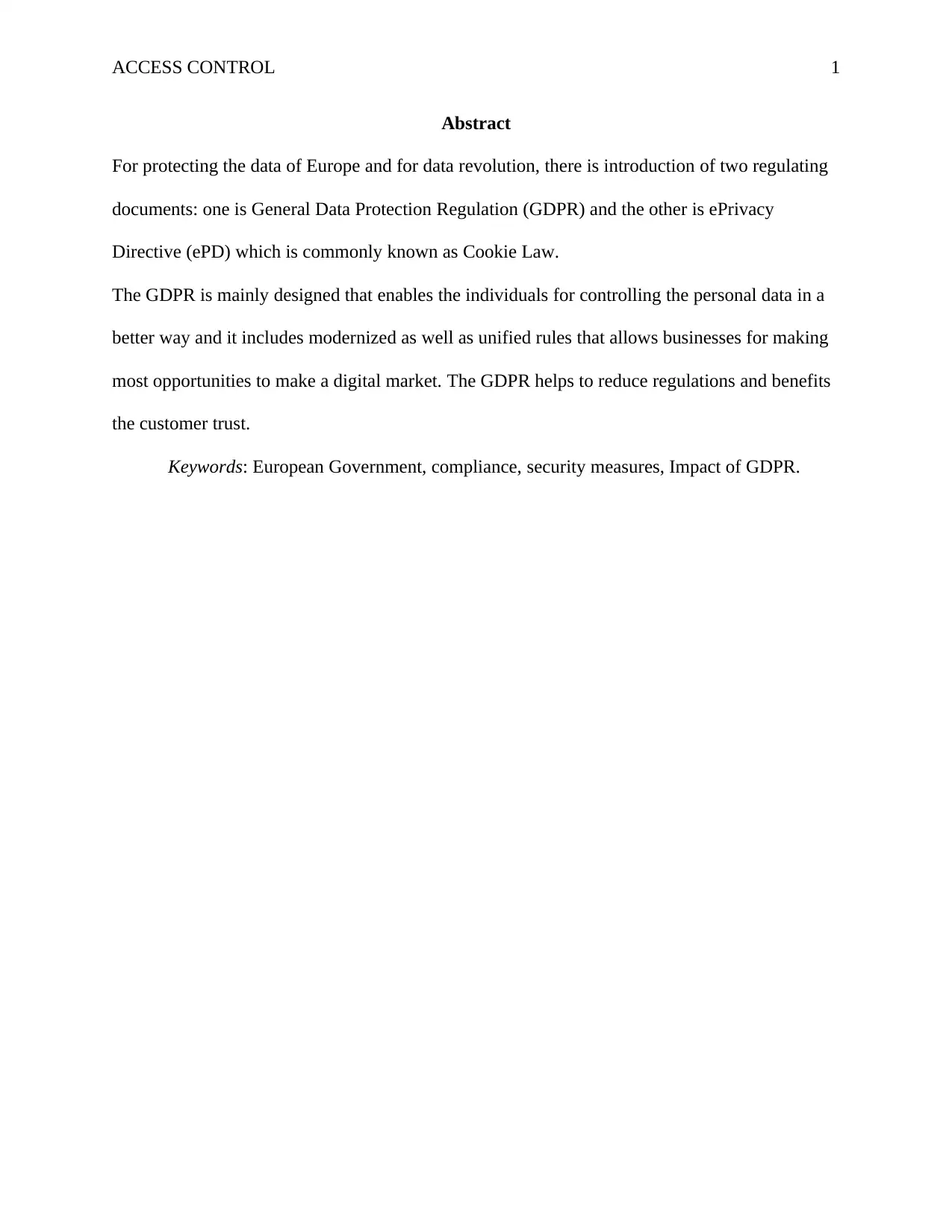
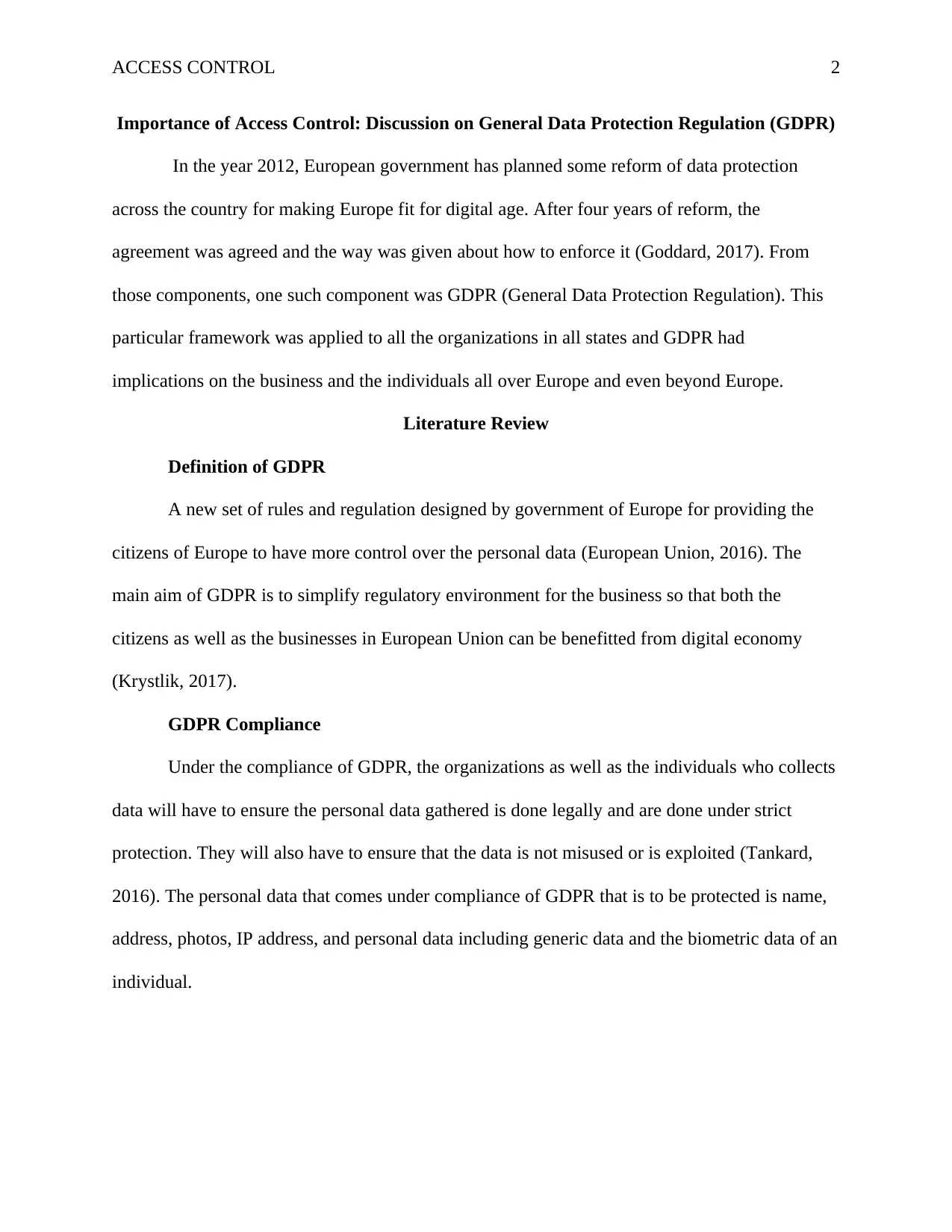

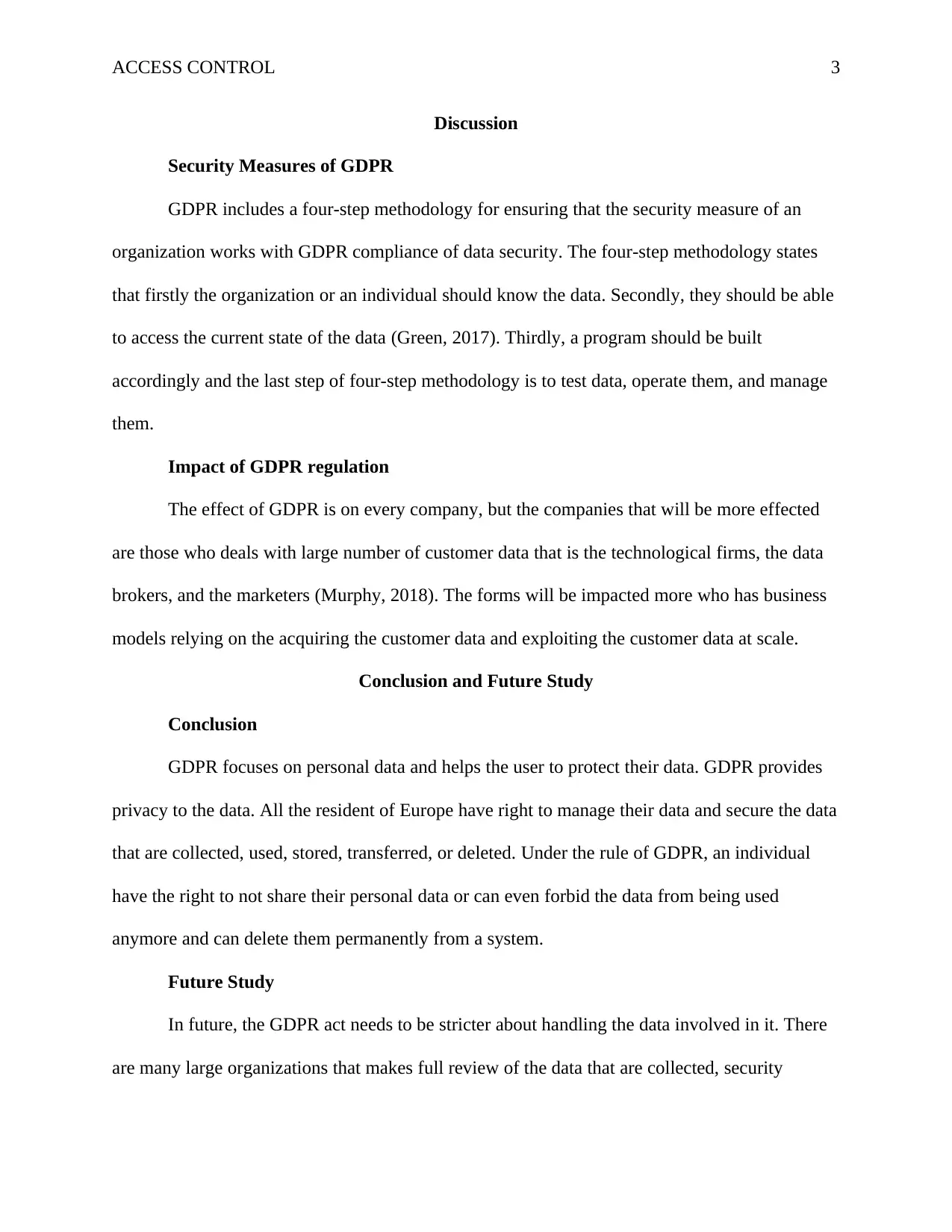
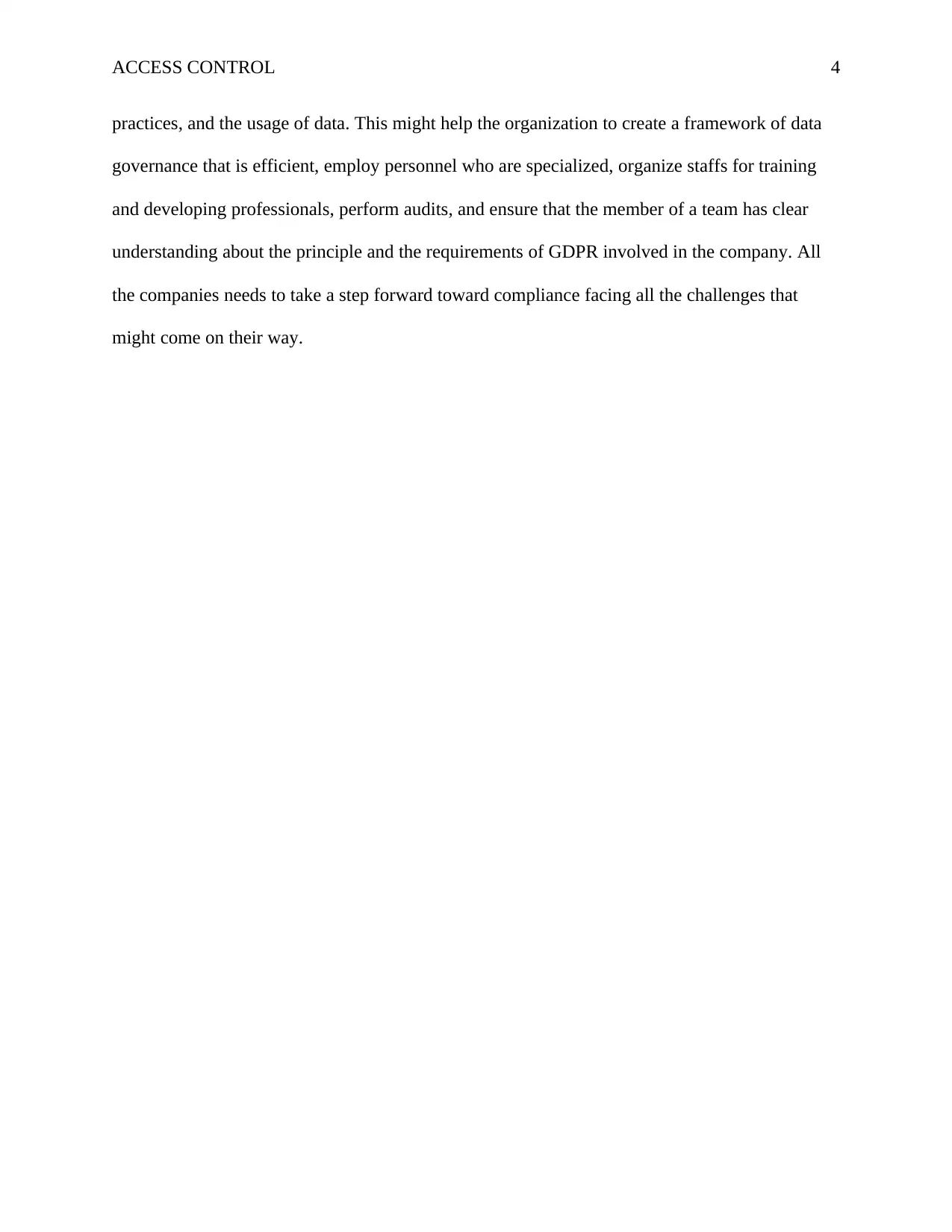
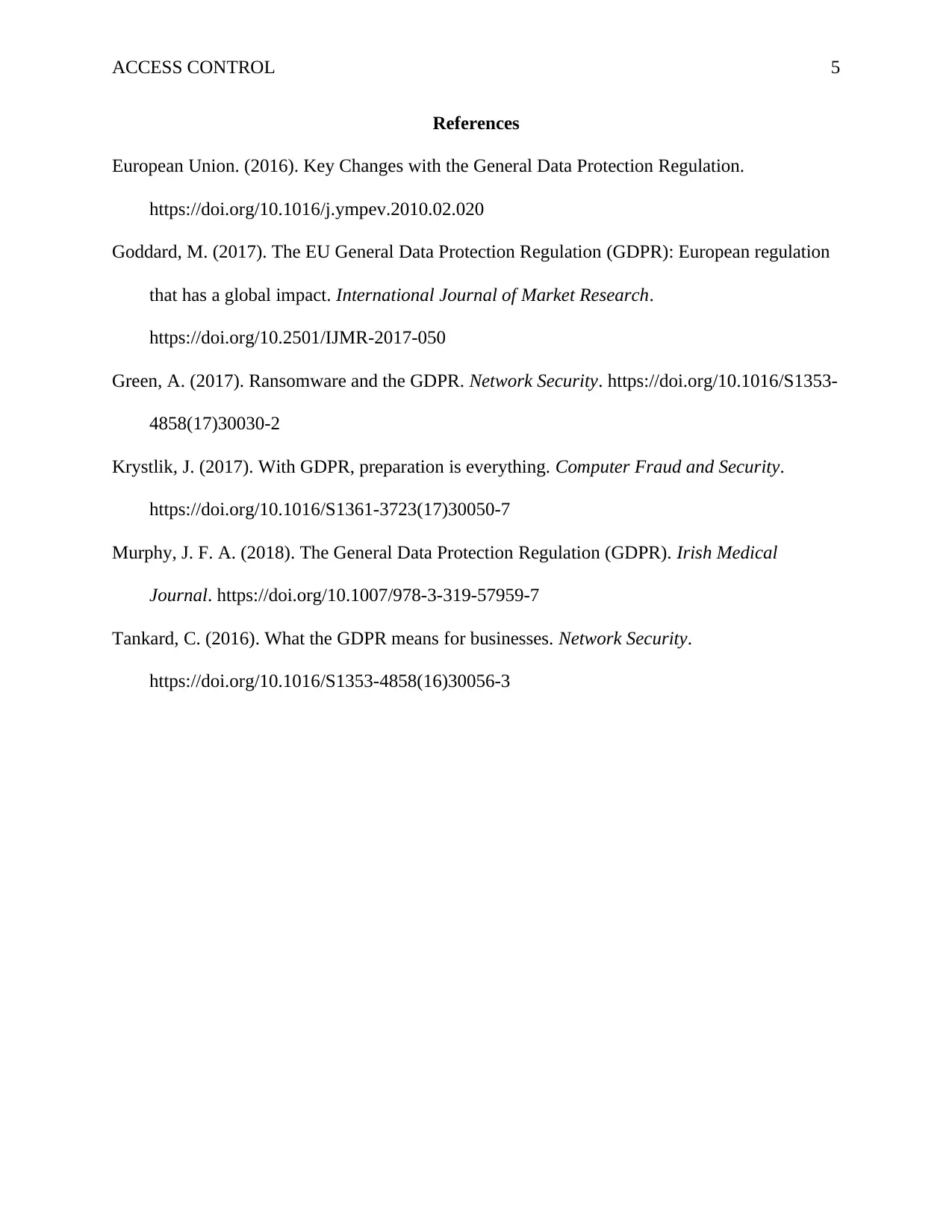





![[object Object]](/_next/static/media/star-bottom.7253800d.svg)